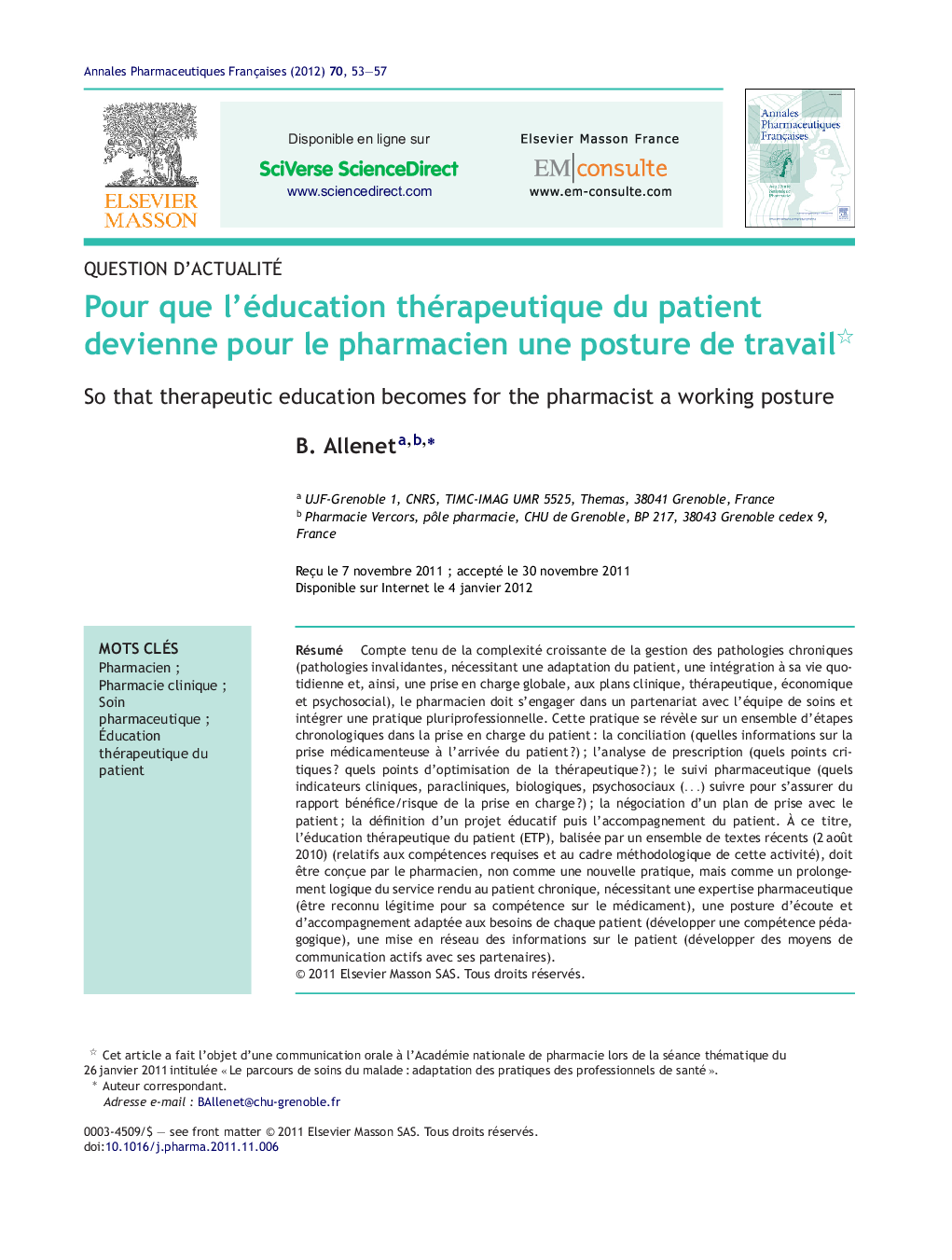| Article ID | Journal | Published Year | Pages | File Type |
|---|---|---|---|---|
| 2478163 | Annales Pharmaceutiques Françaises | 2012 | 5 Pages |
Abstract
Considering the increasing complexity of the management of the chronic pathologies (invalidating, requiring an adaptation from the patient, an integration in his everyday life, a global care, in clinical, therapeutic, economic and psychosocial aspects), the pharmacist has to build up a partnership with the others healthcare professionals. This practice can be described following Pharmaceutical care process: reconciliation (what information on drugs intake upon patient's admission); validation of prescription (what critical points? what points of optimization of the therapeutics?); pharmaceutical follow-up (which clinical indicators, biological, psychosocial (â¦) to assess benefits/risks ratio of the drug regimen?); negotiation with the patient of a schedule of drug intake; definition of an therapeutic education plan. therapeutic patient education, defined by a set of recent texts (August 2, 2010) (relating to qualifications and methodological framework for this activity) must be understood by the pharmacist, not as a new practice but as a logical extension of his service to the chronic patient, requiring pharmaceutical expertise (to be recognized as legitimate over drug therapy), an active listening posture and guidance tailored to each patient (to develop teaching skills), networking with others partners on information around the patient.
Keywords
Related Topics
Health Sciences
Pharmacology, Toxicology and Pharmaceutical Science
Drug Discovery
Authors
B. Allenet,
